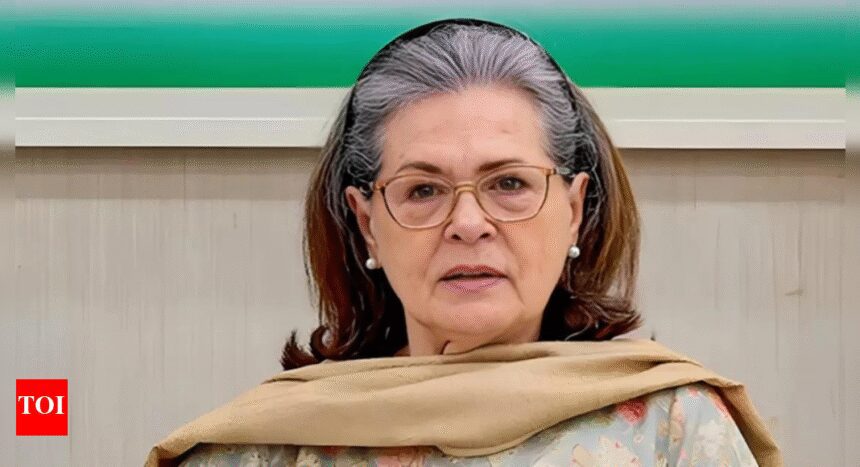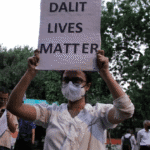NEW DELHI: Sonia Gandhi, chairperson of the Congress Parliamentary Party, has called for India to take a decisive leadership role in the Palestine issue, criticizing the Modi government’s response as marked by “profound silence” and a failure of both humanity and morality. In her article published in The Hindu, Gandhi suggested that the government’s actions seem to be influenced more by Prime Minister Narendra Modi’s personal relationship with Israeli Prime Minister Benjamin Netanyahu than by India’s constitutional values or strategic interests.
Gandhi condemned what she termed “personalized diplomacy,” arguing that it cannot serve as the cornerstone of India’s foreign policy. She pointed out the pitfalls of such an approach, suggesting that similar attempts elsewhere, notably in the United States, have ended in failure.
This article marks Gandhi’s third commentary on the Israel-Palestine conflict, in which she has consistently criticized the current government’s approach. She underlined that India’s historical position on the issue, having formally recognized Palestinian statehood on November 18, 1988, contrasts sharply with the current government’s stance.
Gandhi cited contemporary examples, noting that France, along with other nations like the United Kingdom and Australia, has recognized Palestinian statehood, a move she believes aligns with the aspirations of the Palestinian people. She underlined that more than 150 of the 193 UN member states have granted similar recognition, emphasizing India’s earlier role in supporting liberation movements, such as against apartheid in South Africa and during Algeria’s struggle for independence.
Especially since the escalation of hostilities between Israel and Palestine in October 2023, Gandhi remarked that India has largely abandoned its historical role on the global stage. She referenced the brutal Hamas attacks on Israeli civilians that began on October 7, 2023, followed by what she described as a genocidal response from Israel, resulting in the deaths of over 55,000 Palestinians, including 17,000 children.
Gandhi highlighted the dire humanitarian crisis in the Gaza Strip, where essential infrastructure has been destroyed, and civilians now face famine-like conditions as aid is obstructed. She stated that hundreds of civilians have been shot while attempting to access food, painting a grim picture of the situation.
The Congress leader argued that the lack of action from countries, including India, implicitly legitimizes Israeli actions. She welcomed the shift among some nations to recognize Palestine as a sovereign state, viewing it as a vital affirmation of justice and human rights.
Moreover, Gandhi remarked that India’s voice, once strong in the cause of freedom and human dignity, has become “conspicuously muted” during this crisis. She expressed concerns over India’s recent bilateral agreements with Israel, emphasizing the need for India to address the Palestine issue not merely as a diplomatic matter but as a reflection of its ethical heritage.
She concluded by calling for empathy towards Palestine’s plight, likening it to India’s historical struggles against colonialism. Gandhi asserted that India owes Palestine both understanding and the courage to support its quest for dignity and rights.










